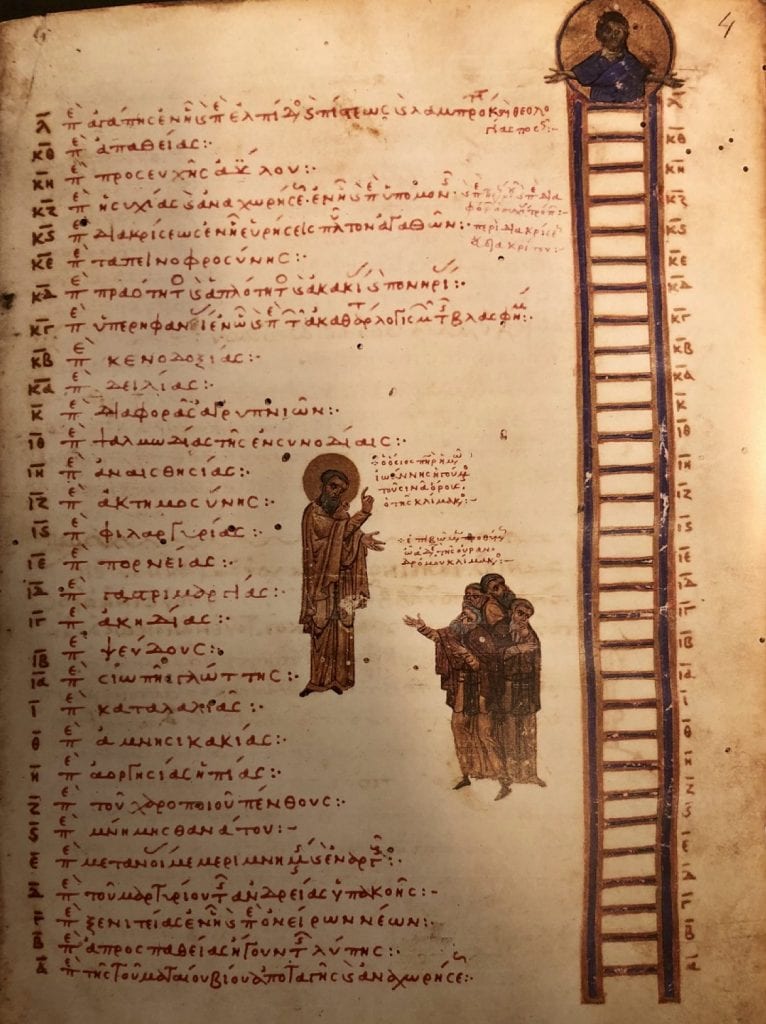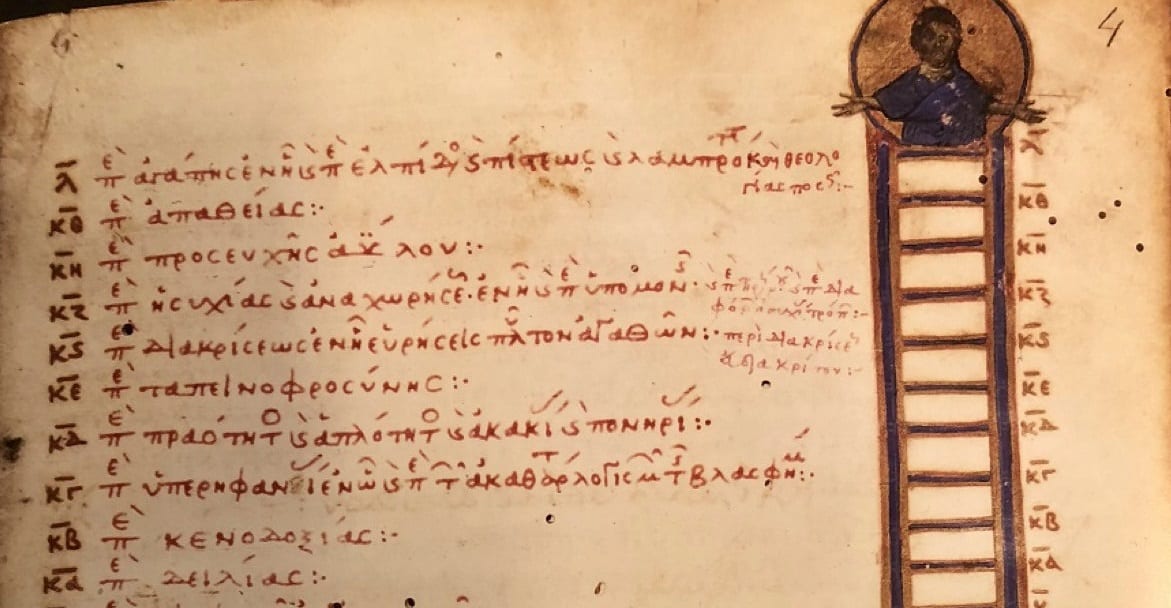By Archons.org
The New York Times on Friday published an informative report on the lawsuit that His All-Holiness Ecumenical Patriarch Bartholomew has just filed against Princeton University, asking for the return of holy manuscripts that were stolen during World War I from the Monastery of the Theotokos Eikosiphoinissa in Drama, Greece. These manuscripts are not only at Princeton, but also at Duke University and the Morgan Library & Museum in New York City. The Order renews its call to these institutions to recognize that the Ecumenical Patriarchate is indeed the rightful owner of these precious and irreplaceable documents, and to return them immediately.
The Times reports that “among the evidence cited in the lawsuit is a volume, ‘Greek Manuscripts at Princeton, Sixth to Nineteenth Century: A Descriptive Catalogue,’ which was published in 2010 and identifies some manuscripts in the school’s collection as having been removed from the monastery in 1917 by Bulgarian authorities.”
The importance of this cannot be overstated. The Times quotes George A. Tsougarakis, the lawyer who is representing His All-Holiness, the Monastery, and other Church officials in the suit. Referring to the catalogue, Tsougarakis says: “This is Princeton’s book, issued by the Princeton press, about Princeton’s collection, written by Princeton employees. In our view that’s about as concrete an admission as you could get.” Attorney Tsougarakis is an Archon of the Ecumenical Patriarchate and member of the National Council, the Order’s governing board.
The holy manuscripts at issue, painstakingly written out by hand and diligently preserved for centuries, were stolen in 1917 by marauding Bulgarian troops from the Monastery of the Theotokos Eikosiphoinissa, along with nearly the entire contents of the library.
The volumes were then sold in bookshops all over Europe and either acquired by the institutions or by collectors who then donated them to the institutions.

According to The Times, “the Byzantine-era manuscripts sought by the plaintiffs are St. John Chrysostom’s ‘Commentary on the Gospel of Matthew,’ written in A.D. 955 by the scribe Nikephoros the Notary; St. John Climacus’s ‘Heavenly Ladder’ written in A.D. 1081 in Constantinople by the scribe Joseph; and pages from the ninth century that were probably part of ‘Commentary on the Gospel of Matthew’ that may have been rebound at some point to ‘Heavenly Ladder.’ In addition, the plaintiffs are asking for the return of a 16th-century version of ‘Commentary on the Gospel of Matthew,’ which they said was also stolen by the Bulgarian forces in 1917 and bought by Princeton in 1921.”
The Times noted that the Ecumenical Patriarchate has been trying to recover these manuscripts for three years, having “first asked for the return of five manuscripts held by Princeton in a letter in 2015 that called them ‘indelible and invaluable pieces of Byzantine culture’ and ‘hallowed writings that are still cherished and revered by the Eastern Orthodox Church and its faithful.’”
The Times quoted Fr. Alex Karloutsos, Spiritual Advisor to the Order of Saint Andrew, Archons of the Ecumenical Patriarchate, stating that the manuscripts are “part of sacred history, and that’s our spiritual and cultural identity,” and that their theft and attempts to recover them had been “very painful.”
In matters such as this, the law is clear: a purchaser, even one who had no idea that he is buying stolen goods, cannot acquire valid title to stolen property, and has an obligation to return it. In 2016, when the Lutheran School of Theology in Chicago learned that one of the manuscripts in its collection, Eikosiphoinissa Monastery Codex 1424, had also been stolen from the monastery by the Bulgarian guerrillas in 1917, the School’s President, Dr. James Nieman, gave many principled reasons for returning the manuscript to its rightful home. He also movingly noted that when asked that the manuscript be returned, he and his colleagues asked themselves three questions:
“If you could right a wrong you never caused, would you? If you could befriend a stranger, would you? And if you could by a single act show the good news of Jesus to others, would you?”
The answer to these questions for the Lutheran School was a resounding and unqualified yes. The Order hopes that officials at Princeton University, as well as Duke University and the Morgan Library & Museum will also answer these questions affirmatively, and move swiftly now to return to the manuscripts in their collections to their rightful home in the Eikosiphoinissa Monastery.
The Order has posted about this matter on Twitter and Facebook, but we need the help of all Orthodox Christians and people of good will. Go to those posts and:
1) like them;
2) add comments on them that state that these volumes should be returned; and
3) most importantly, re-post or re-tweet them to all your contacts. Use the hashtag #bringthebooksback.
Please also share Archon John Metaxas’ interview with Regional Commander Tsougarakis on his podcast.
Regional commanders are requested to send this article to all the archons in your region.
Finally, please send an email directly to the presidents of the three institutions telling them that the stolen manuscripts should be returned (A draft for your use appears below).
Princeton
Christopher Eisgruber, President
haparker@princeton.edu
Duke
Vincent Price, President
president@duke.edu
The Morgan Library
Colin Bailey, Director
cbailey@themorgan.org
Here is a model email you can use verbatim or adapt to add a personal comment.
Dear sir,
I am a Greek Orthodox Christian and I have learned that your institution is in possession of holy manuscripts that were stolen during World War I from the Kosinitza Monastery. I urge you to follow the example of other institutions that have returned stolen art and artifacts, including the Lutheran School of Theology in Chicago which returned a manuscript stolen at the same time and from the same location as the ones that are in your collection.
Please return the manuscripts to the monastery.

Anthony J. Limberakis, MD
Archon Aktouarios
National Commander









